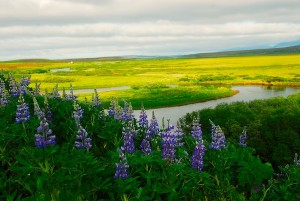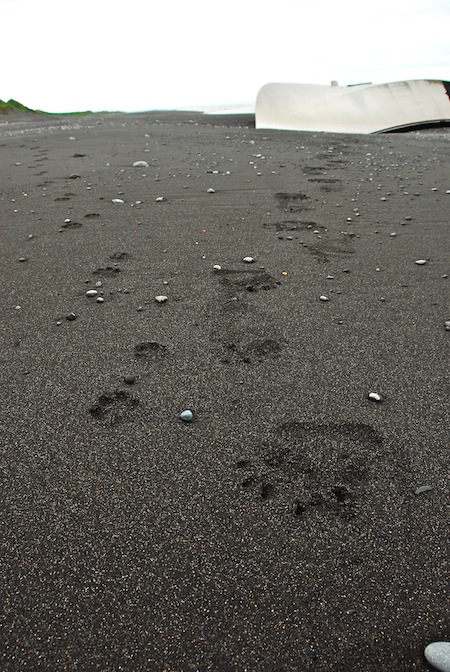 Found this interesting piece in the Anchorage Daily News and it resonated with me. I fished the Alaska Peninsula last summer and I didn’t see any wolves, but I saw 34 grizzlies. The Peninsula is wild, wild, wild country and I kind of felt like bait while wandering around with a seven-weight spey rod. That’s a pretty meaty stick and be sure I would have smacked a bear on its nose if I’d had to, but that wouldn’t have done much to save me.
Found this interesting piece in the Anchorage Daily News and it resonated with me. I fished the Alaska Peninsula last summer and I didn’t see any wolves, but I saw 34 grizzlies. The Peninsula is wild, wild, wild country and I kind of felt like bait while wandering around with a seven-weight spey rod. That’s a pretty meaty stick and be sure I would have smacked a bear on its nose if I’d had to, but that wouldn’t have done much to save me.
Each night on the Peninsula I kept my ears open for wolves but never heard and, nor did I see any. I’m not sure if the bears keep them in check or if there are just too few caribou in the area these days for wolves to make a go of it. Caribou numbers are way down on the Peninsula and biologists believe that overharvest by locals has a lot to do with it. No caribou means no wolves, or at least very few of them.
Maybe wolf numbers will climb due to their ability to dine on all sorts of things, including salmon. Check out the read below for a little info straight from biologist Dominique Watts who keeps track of wolves in the area.
From the Anchorage Daily News: Alaska Peninsula wolves dine on an assortment of seafood when they’re short of fresh meat, according to federal biologist Dominique Watts of the Alaska Peninsula and Becharof National Wildlife Refuges.
Preliminary analysis of hair of about 40 wolves, along with aerial observations, indicate wolves sometimes feed on salmon, seal, whale and walrus carcasses.
Watts published his finding in the journal Wildlife Biology.
The amount of salmon consumed by wolves surprised him.
“Some of these values were what you might expect if you ran this analysis on seal whiskers,” he said. “It made me think we might have a very unique wolf-prey system out here.”
He started collecting samples in 2006.
Others scientists, including researchers in Southeast and British Columbia, have also shown wolves consuming salmon.
“Wolves are generalist carnivores,” said Watts, who characterized the Alaska Peninsula wolf population as stable. “They’re going to eat what’s available — what they can get their hands on with the least effort. We’re not much different. If I’ve got a plate fries in front of me, I’m not going to go looking for a steak.”

